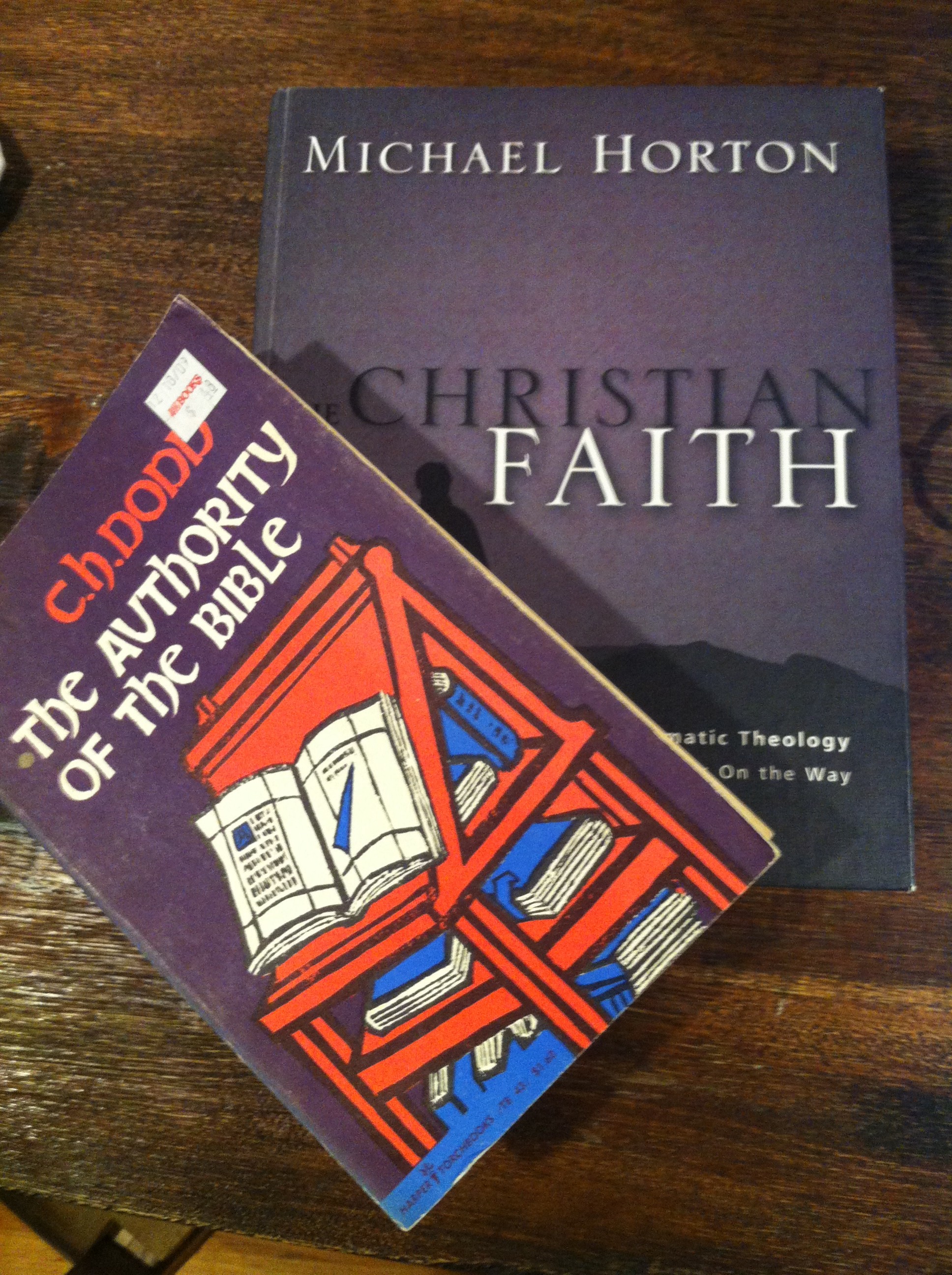The following is a debate been Michael Horton and C.H. Dodd on Plenary Verbal Inspiration of the Holy Scriptures.
In Michael Horton's The Christian Faith, he perceives B.B. Warfield's The Inspiration and Authority of the Bible as the undisputed champion of the Old Princeton doctrine of Plenary-Verbal Inspiration (i.e. Inerrancy). Despite Horton's bravado, in revealing section of his The Christian Faith, titled "Inerrancy after Barth", Horton admits that not all agree that Warfield reigns supreme and admits that C.H. Dodd's The Authority of the Bible has provided a formidable critique of Old Princeton's theory of inspiration. The greatest advocate of Inerrancy, Michael Horton, believes that greatest adversary to Plenary Verbal Inspiration is C.H. Dodd!
I will first provide C.H. Dodd's critique of Plenary Verbal Inspiration from The Authority of the Bible, and then provide Michael Horton's response in The Christian Faith.
C.H. Dodd's critique of Plenary Verbal Inspiration in The Authority of the Bible:
We have already used the term "inspiration". This concept has had so prominent a place in the traditional doctrine of the Scriptures that we must now examine it with some care. The authority of the Bible is in fact often treated as the simple correlate of its inspiration. The question "whether the Bible is inspired" figured largely in the controversies of the last generation. For us, it is difficult to give any precise meaning to the question, so vague and fluctuating is the usage of the word "inspiration" itself, and so uncertain its implications. The theory which is commonly described as that of "verbal inspiration" is fairly precise. It maintains that the entire corpus of Scripture consists of writings every word of which (presumably in the original autographs, for ever inaccessible to us) was directly "dictated" by the Deity, in a sense not applicable to any other known writings. They consequently convey absolute truth with no trace of error or relativity. What such a process of "dictation" might be, it is naturally impossible to say, since ex hypothesi no living man has experience of it, though some advocates of the theory have incautiously adduced as a parallel the phenomena of "control" in the practice of spiritualists. Any attempt to confront this theory of inspiration with the actual facts which meet us in the study of the biblical documents leads at once to such patent confusions and contradictions that it is unprofitable to discuss it.
Dodd, C.H. The Authority of the Bible. New York and Evanston: Harper Torchbook, 1962. 41-2. Print.
A critique and response of C.H. Dodd from Michael Horton's The Christian Faith:
In view of the careful articulation of verbal inspiration by Hodge and Warfield, among others, it is surprising that as eminent a figure as the critical New Testament scholar C.H. Dodd could continue to misunderstand or misrepresent the concept of verbal-plenary inspiration.
Footnote:
C.H. Dodd, The Authority of the Bible (London: Collins, 1960), 14-15 [sic]: "The theory which is commonly described as that of 'verbal inspiration' is fairly precise. It maintains that the entire corpus of Scripture consists of writings every word of which (presumably in the original autographs, forever inaccessible to us) was directly 'dictated' by the Deity. . . . They consequently convey absolute truth with no trace of error or relativity." This follows from the use of the word inspiration, he suggests, in a grossly ahistorical fashion: "For primitive religious thought the 'inspired' person was under the control of a super natural influence." In response, I would say that the original autographs of the Bible are not "forever inaccessible to us" any more than those of other well-attested ancient tests with myriad copies that may be compared in order to arrive at the most likely original reading. Dodd reduces Warfield's and Hodge's account of verbal-plenary inspiration to "dictation" and a trancelike subversion of human agency in spite of their explicit rejection of such a mechanical view.
Michael Scott Horton, The Christian Faith: A Systematic Theology for Pilgrims on the Way. Grand Rapids, MI: Zondervan, 2011. 181. Print.




December 21st, 2014 - 06:51
cough cough, found a typo “Dod” should be Dodd.
December 24th, 2014 - 12:01
Thanks Doug, all fixed!
September 29th, 2019 - 18:00
See:
J.Patrick Maloney’s PHD- St.Mary’s Catholic Seminary. ( First Baptist to receive PhD from St Marys )
New Orleans Seminary had.rejected his work a few years earlier, so he redid the required work at St Mary’s !
*************************************
(Doctrinal Thesis)
“A refutation of C.H. Dodd’s
View of scripture”
*************************************
Carved in Divine Stone is this rarely viewed document !